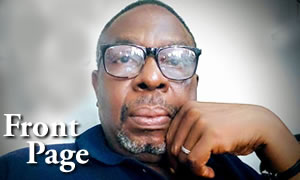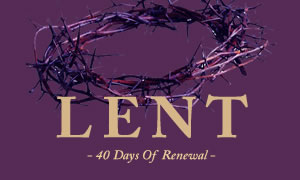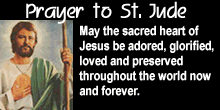


 Fear is an essential human emotion, so it surely must have its proper place.
Fear is an essential human emotion, so it surely must have its proper place.
Aristotle "Courage: in all circumstances the ability to judge rightly about the nature and extent of dangers."
"For instance, when Homer makes Odysseus strike himself on the chest, and 'call his heart to order,' saying: 'Prudence my heart, you have put up with fouler than this.'" Plato, Republic
Yet there are different kinds of fear, or ways of fearing, and it is hard to know how to fear well. It is especially difficult to think clearly about this when much of the fear that we experience probably needs to be set aside, or in any case transformed or redirected.
How do we recognize the difference between good fear and bad fear? This is a great question. The first step is to know that there is a difference. Often, the admonition we need to hear is "Do not be afraid." But this is difficult, because we know intuitively that some fear is appropriate, and so we are challenged to discern which fear needs to be set aside and which doesn't.
The current corona virus situation causes much fear in us. We realize that so much more could go wrong, and so many more people might be hurt, in various ways. Simply to say "there is nothing to fear" would be wrongheaded, even dangerous.
I love Plato's approach to courage as the virtue that moderates and transforms fear. Courage consists, at least in part, in "the ability to judge rightly about the nature and extent of dangers." This bears much consideration. Clearly, Plato does not mean that the courageous man is the one who can figure out all the facts of just how dangerous a particular situation is — though the courageous man will indeed make a reasonable effort to know what he needs to know.
Plato's point takes us to a higher, more significant vantage. The courageous man has learned to judge different kinds of dangers in their relative importance. He has learned to fear what is most truly to be feared, and not to fear -at least not so much - things that are intrinsically less dangerous in the big picture.
The courageous man might fear the loss of lesser things, but that fear is transformed and given context by a richer, life-affirming fear of the loss of what is most important.
Courage is always rooted in insight into the hierarchy of goods. It is rooted in wisdom, which grasps the primacy of living well over such goods as health, safety, and profit. The latter are not ignored. Rather they are seen and treated according to their own true, though limited value.
Plato quotes a gorgeous line from the Odyssey. Odysseus strikes his chest and says, "Prudence my heart, you have put up with fouler than this." Implied is that the courageous man can judge just how foul things are or not, seeing all in the perspective of just how great certain things are.
The courageous man might fear the loss of lesser things, but that fear is transformed and given context by a richer, life-affirming fear of the loss of what is most important. And so he heeds the admonition "be not afraid" as especially applying to lesser though very real dangers and evils. He is steadfast in his commitment to higher goods, and in his confidence that they can still be achieved - even if he suffers terrible loss of lesser goods.
Courage is a cardinal virtue; it is one hinge on which swings the good life itself.
It is a precious jewel sought in a life-long project. And it is cultivated precisely in the context of real dangers - lesser and greater ones - such as we face today. The courageous man learns to 'overcome' his fear of lesser but real dangers, while acting with conviction and confidence in the travails of life. Let us then encourage one another. We can learn that in a very real sense, we have nothing to fear - if we see things as they truly are.
Reprinted with permission from the author, John A. Cuddeback.
The Author
John A. Cuddeback is chairman and professor of Philosophy at Christendom College in Front Royal, Virginia. He is the author of True Friendship: Where Virtue Becomes Happiness and Aristotle's Ethics: A Guide to Living the Good Life.
Copyright © 2020 John A. Cuddeback


I have been thinking a great deal about my experience at Reconciliation this past Saturday. I felt an intense and unexplainable urge to go and confess my sins when I woke up that morning. I try to go every six weeks or so, but this was no routine visit to the priest for me. I needed to unburden myself of the numerous venial sins I had committed since I last participated in this Sacrament.
Purest Gold: God's Refining Fire in our Lives »
After salvation, many young Christians wonder if there's anything more to their newfound faith than just the security blanket of "being a Christian." Time and time again, God shows himself as a "refiner," and our lives are as gold. God started leading me in this study to understand what He was doing in my life, as well as in the lives of others.
Picking up my pen to write this column, I couldn’t imagine how time flies. Since the last publication of this column I have gone through a lot, especially the loss of my dear mother to whom I dedicate this article. Not only her, but seems I lost a whole generation of my close family.
How to Achieve Business Excellence »
“Do you see a man who excels in his work? He will stand before Kings; He will not stand before unknown men.” Proverbs 22:29
Spiritual Development for our Youth »
Most of us youth in today's fast moving world are easily thrown off by difficulties and worries.
The theme of conversion is a thread that runs all through Lent, but conversion takes on different aspects throughout the phases of Lent. The first two and a half weeks focused on the interior turning of hearts; the liturgy urges the faithful to reflect and examine consciences thoroughly.
Saint Josephine Bakhita »
Feast Day: February 8
Patron Saint Of: Sudan
Saint Josephine Margaret Bakhita was born around 1869 in the village of Olgossa in the Darfur region of Sudan. She was a member of the Daju people and her uncle was a tribal chief. Due to her family lineage, she grew up happy and relatively prosperous, saying that as a child, she did not know suffering.
Catholics Must Fast More Intensely This Lent»
The Norbertine Canons of St. Michael's Abbey have created this digital Lenten retreat so that you can journey through this holy season alongside them. If you want to have one of your best Lenten seasons yet, join us in our Lenten Program "The Great Fast" - https://theabbotscircle.com/the-great-fast-join
When Your Faith Is Put to the Test - Bishop Barron's Sunday Sermon»
Friends, we come now to the Second Sunday of Lent, and we’re on both dangerous and very holy ground with the first reading from the twenty-second chapter of Genesis. The ancient Israelites referred to it as the “Akedah,” which means the “binding”: Abraham binds and is ready to sacrifice Isaac at God’s command.

Copyright © 2002-2024 THE BEACON INTERNATIONAL CATHOLIC MAGAZINE. All rights reserved.
another mc.rufus interactive web design